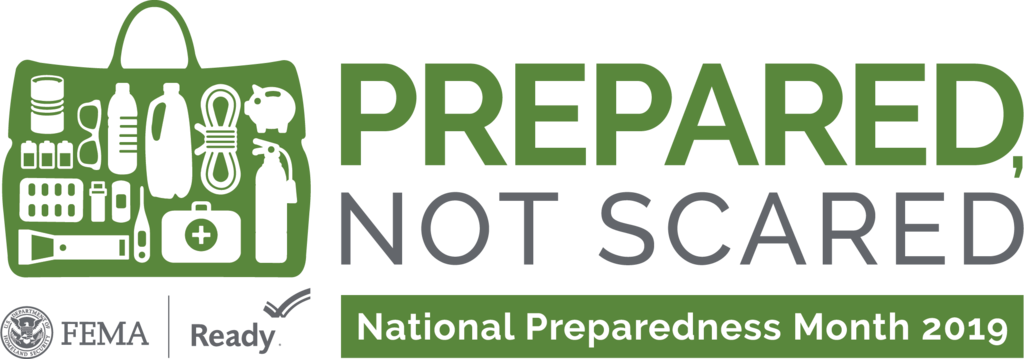September is National Preparedness Month
Disasters can happen in any area of the United States. In Indiana, we see tornadoes, flash flooding, and severe winter storms. These disasters often happen with little to no warning and no time to prepare. Having a plan for your home and family in the event of a disaster alleviates worry and panic. It also makes it easier to respond to the emergency before, during, and after it happens.
Since September is National Preparedness Month, we want to remind our readers how important it is to just have a plan in the event of an emergency. And no matter where you live, extended power outages can be both inconvenient and dangerous.
Know Your Risks
The first step in emergency preparedness is just identifying the risks you may face in your geographical area. As we mentioned, in our area of Indiana, we often see severe winter weather, flash flooding, and tornadoes. The best methods of preparedness can be identified when we know our risks.
Make Your Plans
Once you’ve identified the possible disaster risks in your area, you are able to make a plan. A state of emergency declared in advance of an impending disaster allows governments to put emergency plans into action. Just as the government has a disaster plan and the equipment and supplies to deal with it, each family should also make plans and prepare.
Make Preparations
Plans without preparations are nearly useless. For example, if severe winter storms are a risk in your area, being sure that you have enough emergency supplies to carry your family through a storm is critical. In these circumstances, a backup generator would help provide heat, protect food and medical supplies, and provide basic necessities.
Communicate and Practice Your Plans
Like you would practice a fire drill with your family, be sure to communicate and practice your other emergency plans with your family. Being sure that each member of the family knows that you have a plan can help prevent panic and make dealing with an emergency situation easier for everyone. Any member of the family who has a role in the emergency plans should know where to go, what to do, and how to handle the emergency.
Know Your Resources
Most local governments offer a variety of resources ranging from local emergency response information to government agency readiness plans. Seek out this information for your local area and bookmark websites on smartphones, tables, and computers to keep them easily accessible. Financial resources are also important. Consider your home insurance situation and make sure you feel secure in your current policy. Keep a log of valuables in your home in the event of complete loss and make copies of important documents. Keep one set in a bank box and another at home.
Be Prepared
While we, of course, would be thrilled for you to decide to purchase a backup generator as part of your emergency plans, we above all want you to be prepared in the event of a disaster. Emergency preparedness can do more than make you comfortable during a storm. It can save your life.


no6ap7
0pinxp
This is the appropriate blog for anybody who desires to find out about this topic. You understand a lot its nearly onerous to argue with you (not that I actually would need…HaHa). You undoubtedly put a new spin on a topic thats been written about for years. Nice stuff, just great!
w0i8bx
jdoxu4
1zzjer
Because the admin of this site is working, no doubt very quickly it will be well-known, due to its feature contents.
Here is my webpage: vpn coupon code 2024
Thanks for the auspicious writeup. It in truth was a amusement account it.
Look complex to more brought agreeable from you! By the way,
how can we be in contact?
Feel free to visit my blog vpn special coupon
0bbx6u
twcpdg